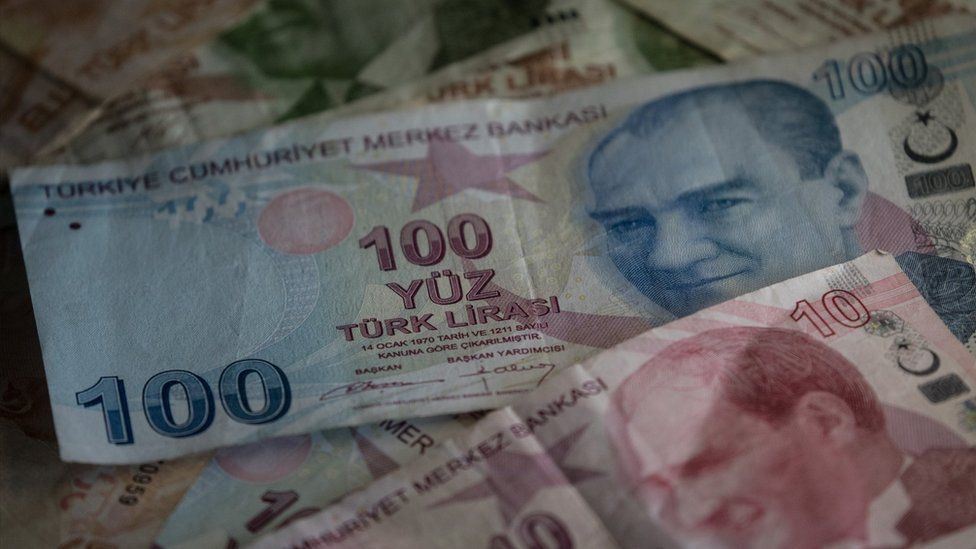
Turkey’s currency has tumbled as much as 14% after President Recep Tayyip Erdogan sacked the country’s central bank governor over the weekend.
Naci Agbal had been credited as a key force in pulling the lira back from historic lows.
Mr Erdogan replaced him in a surprise move on Saturday, the third central bank governor exit in under two years.
Mr Agbal, appointed in November, had been raising interest rates to fight an inflation rate running above 15%.
The removal has shocked both local and foreign investors who had praised Turkey’s central bank’s recent monetary policy.
The lira was at one point the best performing emerging-market currency of 2021, having recovered almost a fifth from a low against the US dollar.
Last week, the Turkish currency rose strongly after Mr Agbal increased interest rates by 2 percentage points, double what economists expected.
Investors have been calling for tighter monetary policy in Turkey to tame its high inflation rate, as prices rise rapidly in the country.
There are now concerns that Mr Erdogan’s decision to install Sahap Kavcioglu in the role could erode the gains made during Mr Agbal’s short tenure.
Mr Kavcioglu is a little-known professor of banking and a former lawmaker from the ruling Justice and Development party. He is known to oppose high interest rates as a way of fighting inflation.
Turkey’s interest rate stands at 19% which has attracted foreign investors to park their cash in the currency.
In a statement on Sunday, the central bank said it “will continue to use the monetary policy tools effectively in line with its main objective of achieving a permanent fall in inflation”.
Erdonomics
Jeffrey Halley, a senior market analyst at currency exchange firm OANDA argues that President Erdogan has his own brand of economics – Erdonomics.
“The base premise of Erdonomics is that higher interest rates cause higher inflation, a theory that flies in the face of conventional economic theory everywhere,” Mr Haley told the BBC.
Higher interest rates lead to higher costs of borrowing which deters consumers from over-spending, while encouraging people to save. However, the downside is often slower economic growth.
“Mr Agbal was widely respected for his attempts to stabilise inflation.”





























